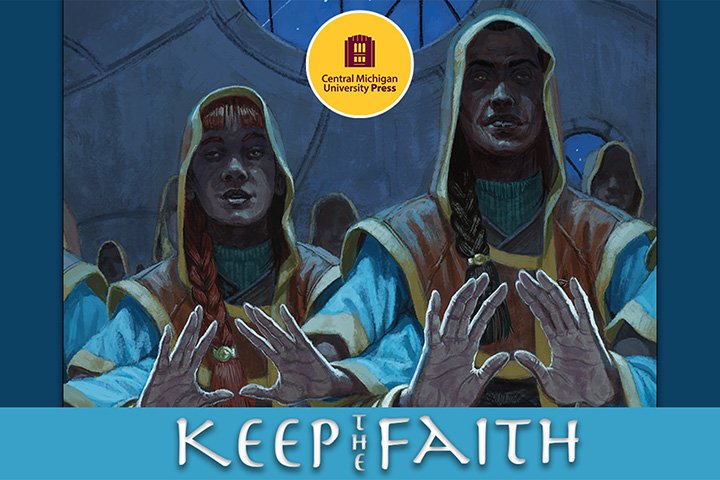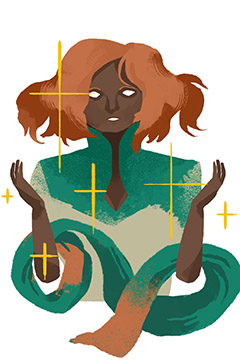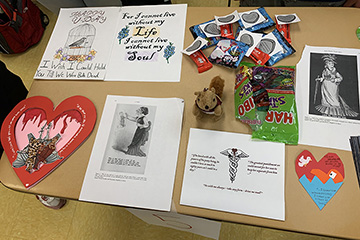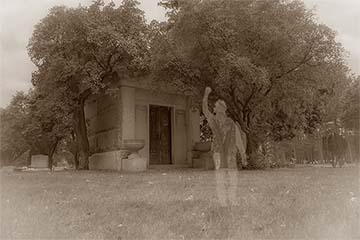Keep the Faith
New storytelling game explores religion’s evolution
A new tabletop game, Keep the Faith, invites players to explore how religions change over time through collaborative storytelling. Developed by Greg Loring-Albright and published by Central Michigan University Press, the game launched on BackerKit on February 4, 2025.
Faith in flux
In Keep the Faith, players guide a fictional Faith through evolving eras, shaping traditions, doctrines, and rituals. Using Aspect, Era, and Goal cards, they navigate shifting values, external pressures, and internal conflicts, sometimes reinforcing old ways, other times splintering into new sects.
The game’s accessible mechanics appeal to both newcomers and veteran world-builders. Elements like music, worship spaces, and symbols shift in meaning based on player choices, creating a unique narrative every session.

Cover to the game, Keep the Faith, with artwork by Jabari Weathers, showing a pair of religious adherents, hands outstretched while taking part in a faith ritual.
Learning through play
Designed for 60–90 minute sessions, Keep the Faith works as a casual one-shot game or an engaging tool for classroom discussions. Its modular nature ensures replayability and thought-provoking conversations about religious transformation.
Jonathan Lawrence, Associate Professor of Religious Studies at Canisius University, sees its educational potential.
“I could see myself using this early in a semester to introduce various concepts about religion . . . or later in the term to talk about how groups evolve—or maybe even use it both times and allow students to compare,” said Lawrence.
This aligns with CMich Press’s “Games for Learning” initiative, which develops peer-reviewed educational games.

A collaborative creation
Loring-Albright, known for Ahoy and Bloc by Bloc: Uprising, brings his expertise in narrative-driven game design to Keep the Faith. Artists Jabari Weathers and momatoes enhance the experience with striking visuals.
CMU student Liv O’Toole, who playtested the game, found its moral dilemmas engaging.
“As my peers and I drew Aspect cards and our storylines developed, it became clear that our values were not aligned,” said O’Toole. “By the end, we had created our own religious tradition and gained an appreciation for how faiths evolve.”
With its blend of storytelling and meaningful discussion, Keep the Faith stands out as an innovative and engaging experience for players and educators alike.




